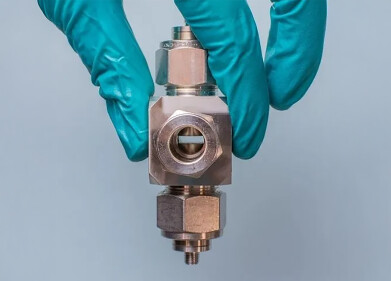Analytical Instrumentation
UK Brings Forward Ban on Petrol and Diesel Cars
Dec 31 2020
In a historic step for climate change action the British government has pledged to ban the sale of new petrol and diesel cars by 2030. The embargo is intended to help the country reach its net-zero target and transition to a greener and more eco-friendly future. More than £1.8 billion has been invested in grants and infrastructure for net zero and low-emission vehicles, including the popular plug-in hybrid electric (PHEV) version of the Mitsubishi Outlander. By 2050 the country plans to slash greenhouse gas emissions to close to net zero, with the ban on sales of petrol and diesel vehicles set to play a critical role in achieving this target.
“The UK is going further and faster than any other major economy to decarbonise transport, harnessing the power of clean, green technology to end the UK’s contribution to climate change by 2050,” says Transport Secretary Grant Shapps.
The new 2030 phase-our deadline places the UK as one of the fastest G7 countries to decarbonise the national fleet. As well as supporting economic growth the milestone investment will improve air quality in cities and towns across the UK.
Britain set to spearhead EV manufacturing
Alongside the grants and infrastructure funding, the government has allocated almost £500 million to support the industry as it transitions towards net-zero vehicles. This includes funding to support almost 170,000 British jobs, with the UK aiming to emerge as a global leader in the manufacturing of EVs.
“Bringing forward the phase-out date could create 40,000 extra jobs by 2030, particularly in our manufacturing heartlands of the North East and across the Midlands, and will see emissions reductions equivalent to taking more than 4 million cars off the road,” adds Shapps.
Government launches a nationwide infrastructure drive
A large portion of the £1.8 billion infrastructure fund will be spent on installing more charge points across the country. Currently, motorists are never more than 25 miles from a rapid EV charge point when driving along major roads and motorways. The infrastructure push will offer motorists even easier access to charge points, a strategy designed to normalise EVs build consumer confidence in the technology. Grants will also be offered to businesses, local authorities and even homeowners, with the government hoping this will increase the availability of both commercial and residential charge points.
“Today’s £500 million pledge will help our automotive industry transition towards electric vehicle production, open up new opportunities to build zero-carbon vehicles right here in the UK, while strengthening regional supply chains with new Gigafactories – creating thousands of new highly skilled jobs,” says Business Secretary and COP26 President Alok Sharma.
Combating climate change will require a global effort, with organisations like the American Petroleum Institute (API), International Lubricant Standardization and Approval Committee (ILSAC) and European Automobile Manufacturers Association (ACEA) working hard to set global performance benchmarks. Find out more in ‘Global Collaboration and Development of the Latest Engine Oil Standards.’
Digital Edition
PIN 25.5 Oct/Nov 2024
November 2024
Analytical Instrumentation - Picturing Viscosity – How Can a Viscometer or a Rheometer Benefit You? - Sustainable Grease Formulations: Evaluating Key Performance Parameters and Testing Method...
View all digital editions
Events
Nov 27 2024 Istanbul, Turkey
Biogas Convention & Trade Fair 2024
Nov 27 2024 Hanover, Germany
Dec 03 2024 Dusseldorf, Germany
Dec 08 2024 Anaheim, CA, USA
Turkey & Black Sea Oil and Gas
Dec 11 2024 Istanbul, Turkey




















